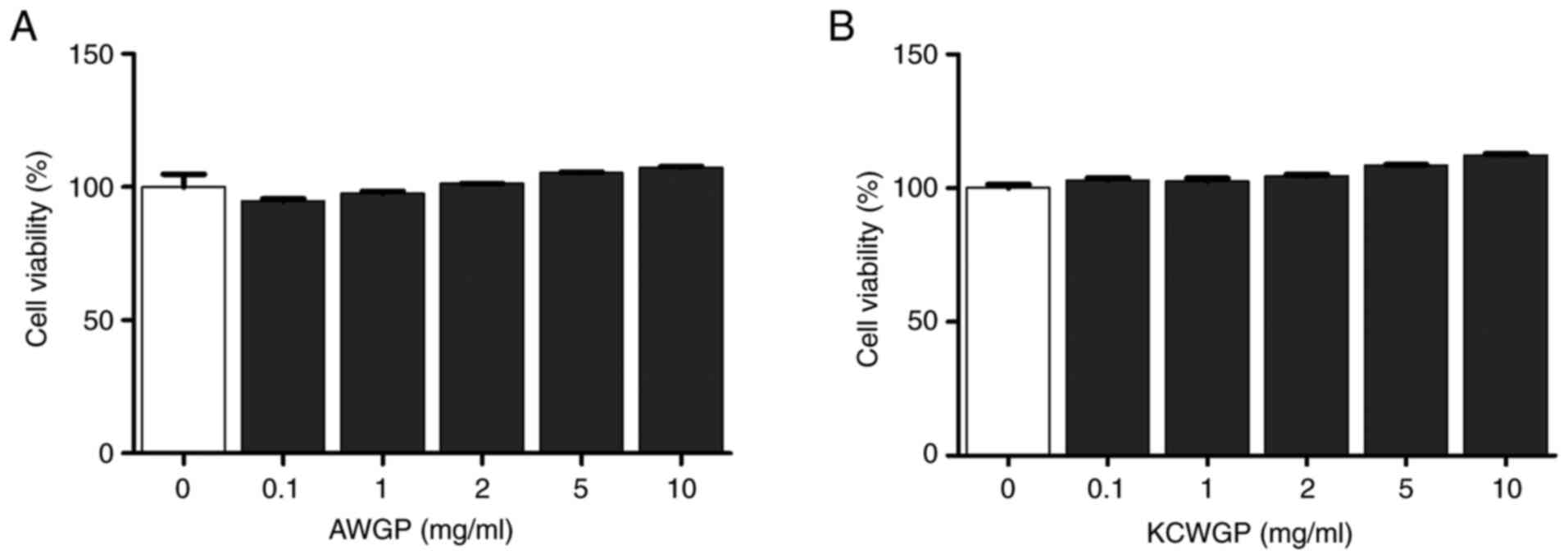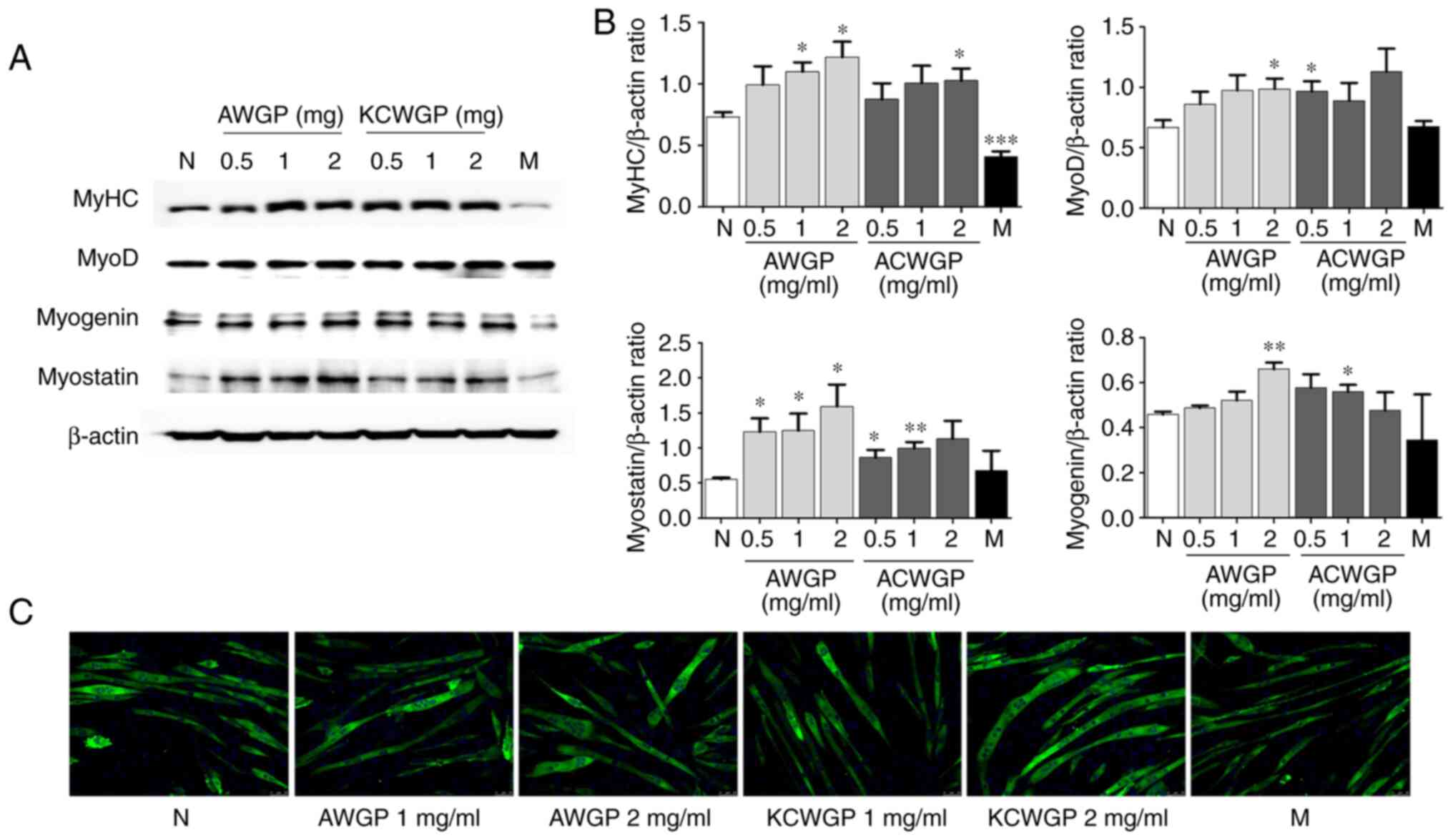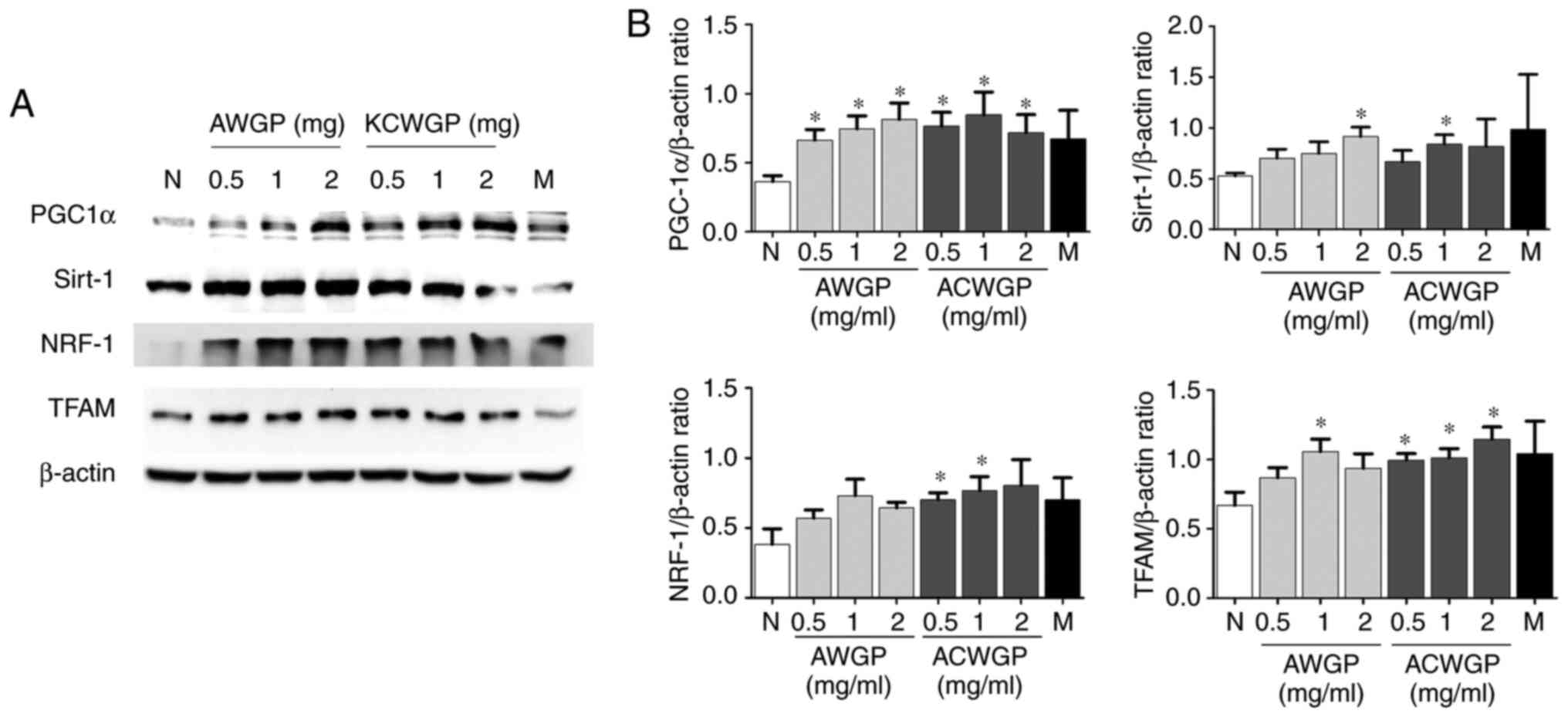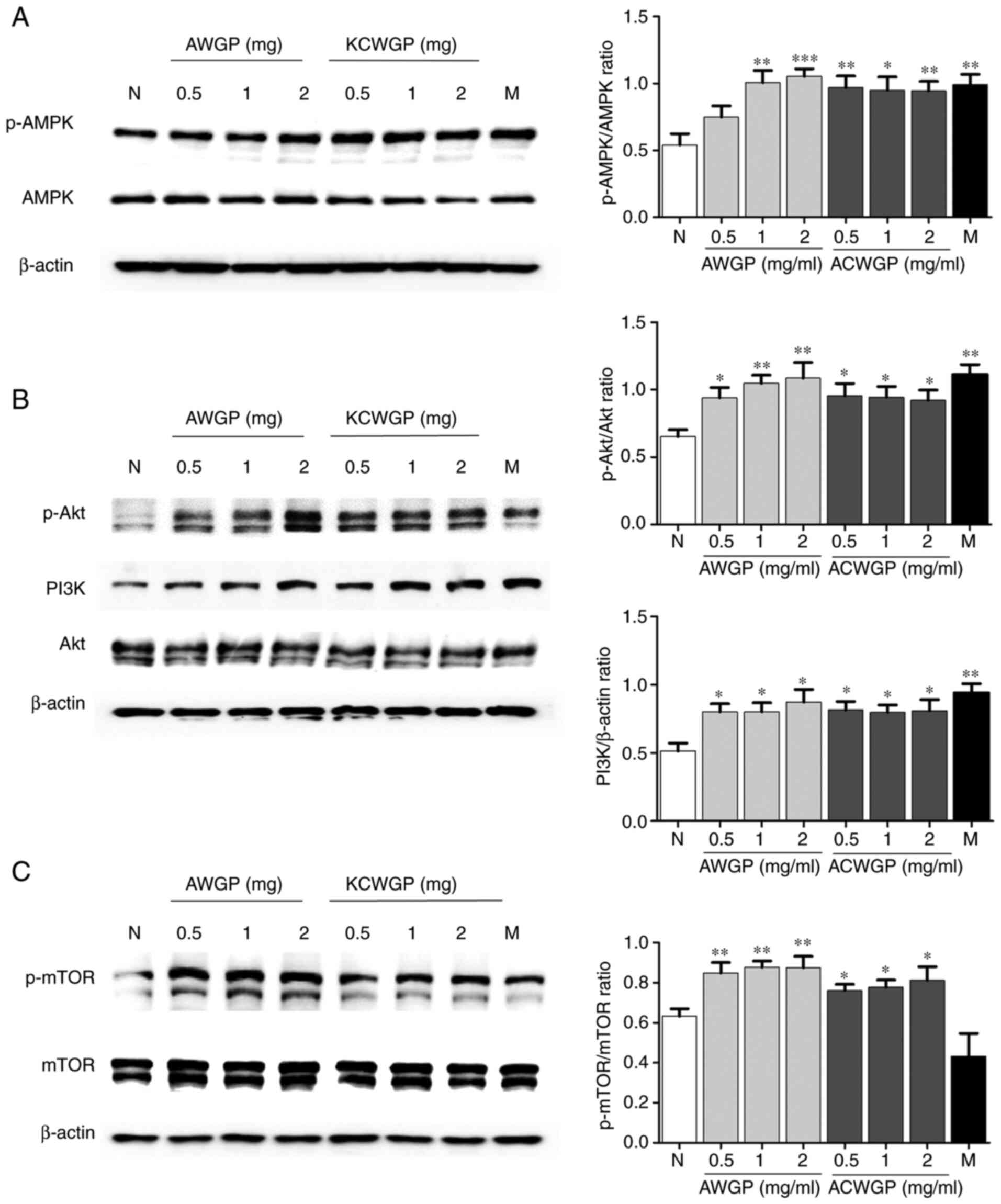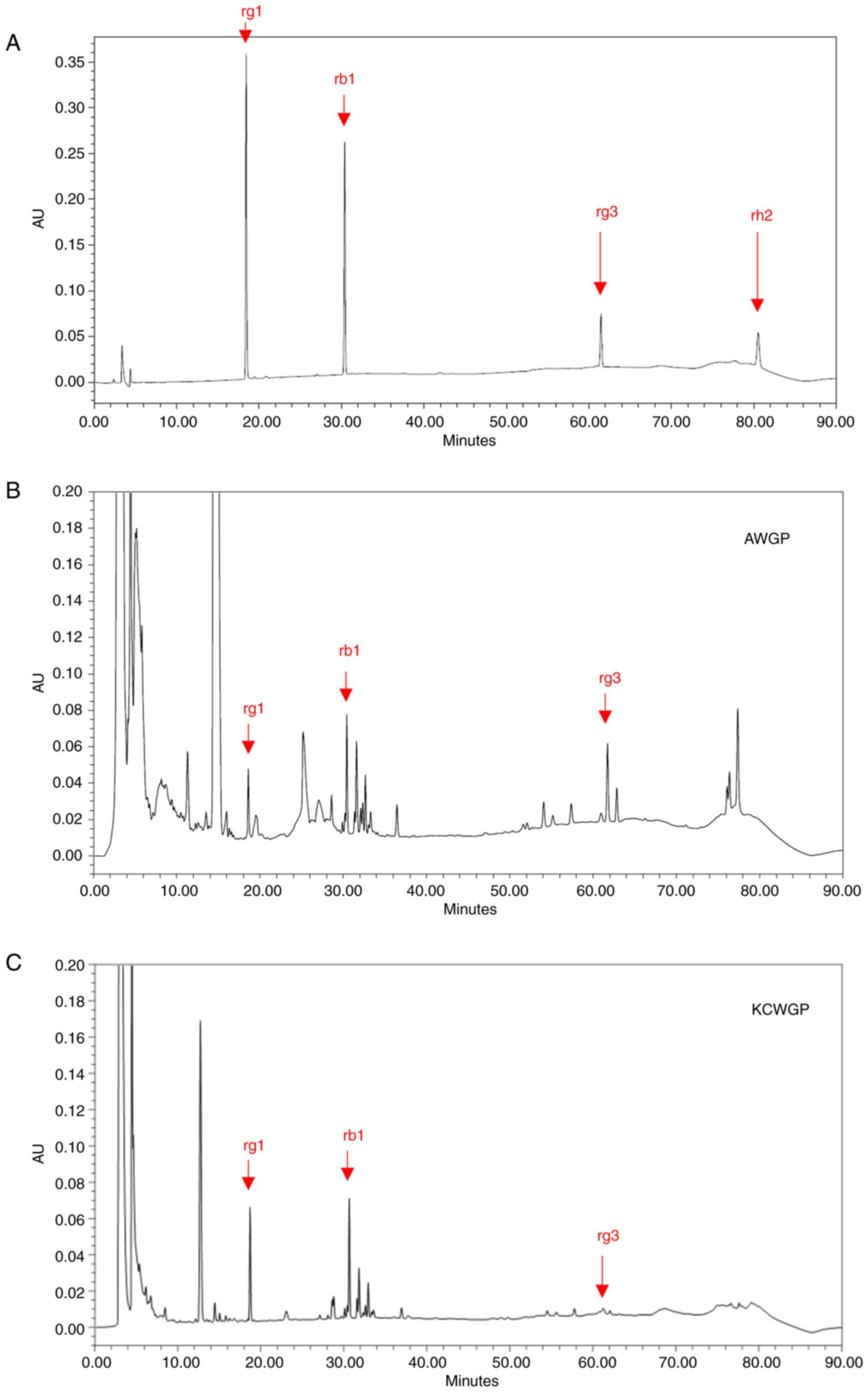|
1
|
United Nations Population Fund (UNFPA) and
HelpAge International, . Ageing in the twenty-first century: A
celebration and a challenge. https://www.unfpa.org/publications/ageing-twentyfirst-centuryJanuary
1–2012
|
|
2
|
United Nations, . World Population
Prospects: The 2002 revision highlights. United Nations; New York,
NY: 2003, https://www.un.org/development/desa/pd/sites/www.un.org.development.desa.pd/files/files/documents/2020/Jan/un_2002_world_population_prospects-2002_revision_volume-ii.pdfFebruary
26–2003
|
|
3
|
Kalyani RR, Corriere M and Ferrucci L:
Age-related and disease-related muscle loss: The effect of
diabetes, obesity, and other diseases. Lancet Diabetes Endocrinol.
2:819–829. 2014. View Article : Google Scholar : PubMed/NCBI
|
|
4
|
Dodds R and Avan AA: Sarcopenia and
frailty: New challenges for clinical practice. Clin Med (Lond).
16:455–458. 2016. View Article : Google Scholar : PubMed/NCBI
|
|
5
|
Cruz-Jentoft AJ, Baeyens JP, Bauer JM,
Boirie Y, Cederholm T, Landi F, Martin FC, Michel JP, Rolland Y,
Schneider SM, et al: Sarcopenia: European consensus on definition
and diagnosis: Report of the European working group on sarcopenia
in older people. Age Ageing. 39:412–423. 2010. View Article : Google Scholar : PubMed/NCBI
|
|
6
|
Kamel HK: Sarcopenia and aging. Nutr Rev.
61:157–167. 2003. View Article : Google Scholar : PubMed/NCBI
|
|
7
|
Lee IS, Kang KS and Kim SY: Panax
ginseng pharmacopuncture: Current status of the research and
future challenges. Biomolecules. 10:332019. View Article : Google Scholar : PubMed/NCBI
|
|
8
|
Park SY, Park JH, Kim HS, Lee CY, Lee H.J,
Kang KS and Kim CE: Systems-level mechanisms of action of Panax
ginseng: A network pharmacological approach. J Ginseng Res.
42:98–106. 2018. View Article : Google Scholar : PubMed/NCBI
|
|
9
|
Jeong HS, Lim CS, Cha BC, Choi SH and Kwon
KR: Component analysis of cultivated ginseng, cultivated wild
ginseng, and wild ginseng and the change of ginsenoside components
in the process of red ginseng. J Pharmacopuncture. 13:63–77. 2010.
View Article : Google Scholar
|
|
10
|
Sun H, Liu F, Sun L, Liu J, Wang M, Chen
X, Xu X, Ma R, Feng K and Jiang R: Proteomic analysis of amino acid
metabolism differences between wild and cultivated Panax
ginseng. J Ginseng Res. 40:113–120. 2016. View Article : Google Scholar : PubMed/NCBI
|
|
11
|
Yang Y, Yang WS, Yu T, Sung GH, Park KW,
Yoon K, Son YJ, Hwang H, Kwak YS, Lee CM, et al:
ATF-2/CREB/IRF-3-targeted anti-inflammatory activity of Korean red
ginseng water extract. J Ethnopharmacol. 154:218–228. 2014.
View Article : Google Scholar : PubMed/NCBI
|
|
12
|
Lee CH and Kim JH: A review on the
medicinal potentials of ginseng and ginsenosides on cardiovascular
diseases. J Ginseng Res. 38:161–166. 2014. View Article : Google Scholar : PubMed/NCBI
|
|
13
|
Sung IJ, Ghimeray AK, Chang KJ and Park
CH: Changes in contents of Ginsenoside due to boiling process of
Panax ginseng C.A. Mayer. Korea J Plant Res. 26:726–730.
2013. View Article : Google Scholar
|
|
14
|
Lee SM, Bae BS, Park HW, Ahn NG, Cho BG,
Cho YL and Kwak YS: Characterization of Korean Red Ginseng
(Panax ginseng Meyer): History, preparation method, and
chemical composition. J Ginseng Res. 39:384–391. 2015. View Article : Google Scholar : PubMed/NCBI
|
|
15
|
Jin X, Che DB, Zhang ZH, Yan HM, Jia ZY
and Jia XB: Ginseng consumption and risk of cancer: A
meta-analysis. J Ginseng Res. 40:269–277. 2016. View Article : Google Scholar : PubMed/NCBI
|
|
16
|
Hernández-García D, Granado-Serrano AB,
Martín-Gari M, Naudí A and Serrano JC: Efficacy of Panax
ginseng supplementation on blood lipid profile. A meta-analysis
and systematic review of clinical randomized trials. J
Ethnopharmacol. 243:1120902019. View Article : Google Scholar : PubMed/NCBI
|
|
17
|
Jung C, Jung JH and Lee MS: A clinical
study of immune pharmacopuncturology. Kyungrak Medical Publishing
Co.; pp. 127–133. Chungnam: 2011, (In Korean).
|
|
18
|
Kang SK, Lee HJ and Park YB: Experimental
studies on the effect of Ginseng radix aqua-acupuncture. Int
Symp East-West Med. 1989:61–83. 1989.
|
|
19
|
Lim C, Kwon K and Lee K: Plexiform
neurofibroma treated with pharmacopuncture. J Pharmacopuncture.
17:74–77. 2014. View Article : Google Scholar : PubMed/NCBI
|
|
20
|
Lee K, Yu J, Sun S, Kwon K and Lim C: A
4-week, repeated, intravenous dose, toxicity test of mountain
ginseng pharmacopuncture in sprague-dawley rats. J
Pharmacopuncture. 17:27–35. 2014. View Article : Google Scholar
|
|
21
|
Jung HL, Kwak HE, Kim SS, Kim YC, Lee CD,
Byurn HK and Kang HY: Effects of Panax ginseng
supplementation on muscle damage and inflammation after uphill
treadmill running in humans. Am J Chin Med. 39:441–450. 2011.
View Article : Google Scholar : PubMed/NCBI
|
|
22
|
Alvarez AI, De Oliveira ACC, Perez AC,
Vila L, Ferrando A and Prieto JG: The effect of ginseng on muscle
injury and inflammation. J Ginseng Res. 28:18–26. 2004. View Article : Google Scholar
|
|
23
|
Hwang JH and Jung HW: Effects of
pharmacopuncture with wild ginseng complex in 2 elderly patients
with obesity: Case report. Medicine (Baltimore). 97:e115342018.
View Article : Google Scholar : PubMed/NCBI
|
|
24
|
Sung SH, Shin BC, Park MJ, Kim KH, Kim JW,
Ryu JY and Park JK: Current status of management on
pharmacopuncture in Korea through introduction of an accreditation
system. J Pharmacopuncture. 22:75–82. 2019. View Article : Google Scholar : PubMed/NCBI
|
|
25
|
Papa EV, Dong X and Hassan M: Skeletal
muscle function deficits in the elderly: Current perspectives on
resistance training. J Nat Sci. 3:e2722017.PubMed/NCBI
|
|
26
|
Kelly DP and Scarpulla RC: Transcriptional
regulatory circuits controlling mitochondrial biogenesis and
function. Genes Dev. 18:357–368. 2004. View Article : Google Scholar : PubMed/NCBI
|
|
27
|
Hock MB and Kralli A: Transcriptional
control of mitochondrial biogenesis and function. Annu Rev Physiol.
71:177–203. 2009. View Article : Google Scholar : PubMed/NCBI
|
|
28
|
Sin J, Andres AM, Taylor DJ, Weston T,
Hiraumi Y, Stotland A, Kim BJ, Hwang C, Doran KS and Gottlieb RA:
Mitophagy is required for mitochondrial biogenesis and myogenic
differentiation of C2C12 myoblasts. Autophagy. 12:369–380. 2016.
View Article : Google Scholar : PubMed/NCBI
|
|
29
|
Oh SS, Kim S, Moon S, Park DH and Kang JH:
Lactate overload inhibits myogenic activity in C2C12 myotubes. Open
Life Sci. 14:29–37. 2019. View Article : Google Scholar : PubMed/NCBI
|
|
30
|
Shen H, Liu T, Fu L, Zhao S, Fan B, Cao J
and Li X: Identification of microRNAs involved in
dexamethasone-induced muscle atrophy. Mol Cell Biochem.
381:105–113. 2013. View Article : Google Scholar : PubMed/NCBI
|
|
31
|
Wang DT, Yin Y, Yang YJ, Lv PJ, Shi Y, Lu
L and Wei LB: Resveratrol prevents TNF-α-induced muscle atrophy via
regulation of Akt/mTOR/FoxO1 signaling in C2C12 myotubes. Int
Immunopharmacol. 19:206–213. 2014. View Article : Google Scholar : PubMed/NCBI
|
|
32
|
Langley B, Thomas M, Bishop A, Sharma M,
Gilmour S and Kambadur R: Myostatin inhibits myoblast
differentiation by down-regulating MyoD expression. J Biol Chem.
277:49831–49840. 2002. View Article : Google Scholar : PubMed/NCBI
|
|
33
|
Tsukamoto S, Shibasaki A, Naka A, Saito H
and Iida K: Lactate promotes myoblast differentiation and myotube
hypertrophy via a pathway involving MyoD in vitro and enhances
muscle regeneration in vivo. Int J Mol Sci. 19:36492018. View Article : Google Scholar : PubMed/NCBI
|
|
34
|
Cole NJ, Hall TE, Martin CI, Chapman MA,
Kobiyama A, Nihei Y, Watabe S and Johnston IA: Temperature and the
expression of myogenic regulatory factors (MRFs) and myosin heavy
chain isoforms during embryogenesis in the common carp Cyprinus
carpio L. J Exp Biol. 207:4239–4248. 2004. View Article : Google Scholar : PubMed/NCBI
|
|
35
|
Tajbakhsh S: Skeletal muscle stem cells in
developmental versus regenerative myogenesis. J Intern Med.
266:372–389. 2009. View Article : Google Scholar : PubMed/NCBI
|
|
36
|
Crocker CL, Baumgarner BL and Kinsey ST:
β-guanidinopropionic acid and metformin differentially impact
autophagy, mitochondria and cellular morphology in developing C2C12
muscle cells. J Muscle Res Cell Motil. 41:221–237. 2020. View Article : Google Scholar : PubMed/NCBI
|
|
37
|
Cantó C and Auwerx J: PGC-1alpha, SIRT1
and AMPK, an energy sensing network that controls energy
expenditure. Curr Opin Lipidol. 20:98–105. 2009. View Article : Google Scholar : PubMed/NCBI
|
|
38
|
Cantó C, Gerhart-Hines Z, Feige JN,
Lagouge M, Noriega L, Milne JC, Elliott PJ, Puigserver P and Auwerx
J: AMPK regulates energy expenditure by modulating NAD+ metabolism
and SIRT1 activity. Nature. 458:1056–1060. 2009. View Article : Google Scholar : PubMed/NCBI
|
|
39
|
Ruderman NB, Xu XJ, Nelson L, Cacicedo JM,
Saha AK, Lan F and Ido Y: AMPK and SIRT1: A long-standing
partnership? Am J Physiol Endocrinol Metab. 298:E751–E760. 2010.
View Article : Google Scholar : PubMed/NCBI
|
|
40
|
Suwa M, Egashira T, Nakano H, Sasaki H and
Kumagai S: Metformin increases the PGC-1alpha protein and oxidative
enzyme activities possibly via AMPK phosphorylation in skeletal
muscle in vivo. J Appl Physiol (1985). 101:1685–1692. 2006.
View Article : Google Scholar : PubMed/NCBI
|
|
41
|
Lagouge M, Argmann C, Gerhart-Hines Z,
Meziane H, Lerin C, Daussin F, Messadeq N, Milne J, Lambert P,
Elliott P, et al: Resveratrol improves mitochondrial function and
protects against metabolic disease by activating SIRT1 and
PGC-1alpha. Cell. 127:1109–1122. 2006. View Article : Google Scholar : PubMed/NCBI
|
|
42
|
Liang H and Ward WF: PGC-1alpha: A key
regulator of energy metabolism. Adv Physiol Educ. 30:145–151. 2006.
View Article : Google Scholar : PubMed/NCBI
|
|
43
|
Scarpulla RC: Transcriptional paradigms in
mammalian mitochondrial biogenesis and function. Physiol Rev.
88:611–638. 2008. View Article : Google Scholar : PubMed/NCBI
|
|
44
|
Banerjee J, Bruckbauer A and Zemel MB:
Activation of the AMPK/Sirt1 pathway by a leucine-metformin
combination increases insulin sensitivity in skeletal muscle, and
stimulates glucose and lipid metabolism and increases life span in
Caenorhabditis elegans. Metabolism. 65:1679–1691. 2016. View Article : Google Scholar : PubMed/NCBI
|
|
45
|
Fernandez-Marcos PJ and Auwerx J:
Regulation of PGC-1α, a nodal regulator of mitochondrial
biogenesis. Am J Clin Nutr. 93:884S–890S. 2011. View Article : Google Scholar : PubMed/NCBI
|
|
46
|
Thomson DM: The role of AMPK in the
regulation of skeletal muscle size, hypertrophy, and regeneration.
Int J Mol Sci. 19:31252018. View Article : Google Scholar : PubMed/NCBI
|
|
47
|
Tao R, Gong J, Luo X, Zang M, Guo W, Wen R
and Luo Z: AMPK exerts dual regulatory effects on the PI3K pathway.
J Mol Signal. 5:12010. View Article : Google Scholar : PubMed/NCBI
|
|
48
|
Cho H, Mu J, Kim JK, Thorvaldsen JL, Chu
Q, Crenshaw EB III, Kaestner KH, Bartolomei MS, Shulman GI and
Birnbaum MJ: Insulin resistance and a diabetes mellitus-like
syndrome in mice lacking the protein kinase Akt2 (PKB beta).
Science. 292:1728–1731. 2001. View Article : Google Scholar : PubMed/NCBI
|
|
49
|
McCurdy CE and Cartee GD: Akt2 is
essential for the full effect of calorie restriction on
insulin-stimulated glucose uptake in skeletal muscle. Diabetes.
54:1349–1356. 2005. View Article : Google Scholar : PubMed/NCBI
|
|
50
|
Friedrichsen M, Birk JB, Richter EA,
Ribel-Madsen R, Pehmøller C, Hansen BF, Beck-Nielsen H, Hirshman
MF, Goodyear LJ, Vaag A, et al: Akt2 influences glycogen synthase
activity in human skeletal muscle through regulation of
NH2-terminal (sites 2 + 2a) phosphorylation. Am J Physiol
Endocrinol Metab. 304:E631–E639. 2013. View Article : Google Scholar : PubMed/NCBI
|
|
51
|
Yoon MS: mTOR as a key regulator in
maintaining skeletal muscle mass. Front Physiol. 8:7882017.
View Article : Google Scholar : PubMed/NCBI
|
|
52
|
Bai L, Gao J, Wei F, Zhao J, Wang D and
Wei J: Therapeutic potential of ginsenosides as an adjuvant
treatment for diabetes. Front Pharmacol. 9:4232018. View Article : Google Scholar : PubMed/NCBI
|
|
53
|
Lee DY, Choi BS, Lee IH, Kim JH and Gwon
PS: Comparison of index compounds content and antioxidative
activity of wild ginseng pharmacopuncture by extraction method. J
Intern Korean Med. 39:313–322. 2018. View Article : Google Scholar
|
|
54
|
Lim W, Mudge KW and Vermeylen F: Effects
of population, age, and cultivation methods on ginsenoside content
of wild American ginseng (Panax quinquefolium). J Agric Food Chem.
53:8498–8505. 2005. View Article : Google Scholar : PubMed/NCBI
|
|
55
|
Tanaka O: Solubilizing properties of
ginseng saponins. Soc Korean Ginseng. 67–74. 1987.
|
|
56
|
Mizuno M, Yamada J, Terai H, Kozukue N,
Lee YS and Tsuchida H: Differences in immunomodulating effects
between wild and cultured Panax ginseng. Biochem Biophys Res
Commun. 200:1672–1678. 1994. View Article : Google Scholar : PubMed/NCBI
|
|
57
|
Go GY, Jo A, Seo DW, Kim WY, Kim YK, So
EY, Chen Q, Kang JS, Bae GU and Lee SJ: Ginsenoside Rb1 and Rb2
upregulate Akt/mTOR signaling-mediated muscular hypertrophy and
myoblast differentiation. J Ginseng Res. 44:435–441. 2020.
View Article : Google Scholar : PubMed/NCBI
|
|
58
|
Go GY, Lee SJ, Jo A, Lee J, Seo DW, Kang
JS, Kim SK, Kim SN, Kim YK and Bae GU: Ginsenoside Rg1 from Panax
ginseng enhances myoblast differentiation and myotube growth. J
Ginseng Res. 41:608–614. 2017. View Article : Google Scholar : PubMed/NCBI
|
|
59
|
Lee SJ, Bae JH, Lee H, Lee H, Park J, Kang
JS and Bae GU: Ginsenoside Rg3 upregulates myotube formation and
mitochondrial function, thereby protecting myotube atrophy induced
by tumor necrosis factor-alpha. J Ethnopharmacol. 242:1120542019.
View Article : Google Scholar : PubMed/NCBI
|
|
60
|
Lee SJ, Im M, Park SK, Kim JY, So EY,
Liang OD, Kang JS and Bae GU: BST204, a Rg3 and Rh2 enriched
ginseng extract, upregulates myotube formation and mitochondrial
function in TNF-α-induced atrophic myotubes. Am J Chin Med.
48:631–650. 2020. View Article : Google Scholar : PubMed/NCBI
|















